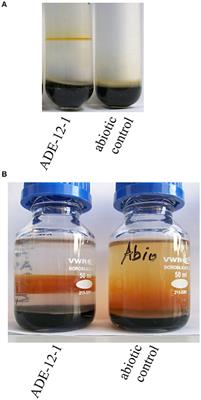EDITORIAL
Published on 14 Mar 2017
Editorial: Recent Advances in Acidophile Microbiology: Fundamentals and Applications
doi 10.3389/fmicb.2017.00428
- 6,670 views
- 17 citations
13k
Total downloads
73k
Total views and downloads
You will be redirected to our submission process.
EDITORIAL
Published on 14 Mar 2017
ORIGINAL RESEARCH
Published on 20 Feb 2017

ORIGINAL RESEARCH
Published on 10 Feb 2017

ORIGINAL RESEARCH
Published on 19 Jan 2017

ORIGINAL RESEARCH
Published on 05 Jan 2017

ORIGINAL RESEARCH
Published on 27 Dec 2016

ORIGINAL RESEARCH
Published on 22 Dec 2016

ORIGINAL RESEARCH
Published on 20 Dec 2016

ORIGINAL RESEARCH
Published on 08 Dec 2016

ORIGINAL RESEARCH
Published on 03 Nov 2016

ORIGINAL RESEARCH
Published on 14 Sep 2016

